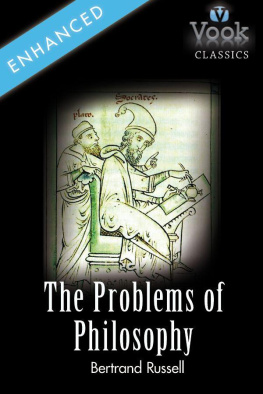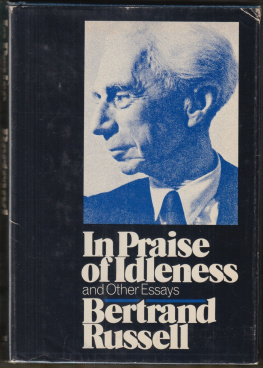Russell - Authority and the Individual
Here you can read online Russell - Authority and the Individual full text of the book (entire story) in english for free. Download pdf and epub, get meaning, cover and reviews about this ebook. year: 2009, publisher: Taylor & Francis, genre: Politics. Description of the work, (preface) as well as reviews are available. Best literature library LitArk.com created for fans of good reading and offers a wide selection of genres:
Romance novel
Science fiction
Adventure
Detective
Science
History
Home and family
Prose
Art
Politics
Computer
Non-fiction
Religion
Business
Children
Humor
Choose a favorite category and find really read worthwhile books. Enjoy immersion in the world of imagination, feel the emotions of the characters or learn something new for yourself, make an fascinating discovery.
Authority and the Individual: summary, description and annotation
We offer to read an annotation, description, summary or preface (depends on what the author of the book "Authority and the Individual" wrote himself). If you haven't found the necessary information about the book — write in the comments, we will try to find it.
Authority and the Individual — read online for free the complete book (whole text) full work
Below is the text of the book, divided by pages. System saving the place of the last page read, allows you to conveniently read the book "Authority and the Individual" online for free, without having to search again every time where you left off. Put a bookmark, and you can go to the page where you finished reading at any time.
Font size:
Interval:
Bookmark:
Authority and the Individual
Russell has rarely written more lucidly, lightly and directly
The Spectator
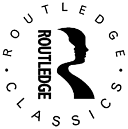
Routledge Classics contains the very best of Routledge publishing over the past century or so, books that have, by popular consent, become established as classics in their field. Drawing on a fantastic heritage of innovative writing published by Routledge and its associated imprints, this series makes available in attractive, affordable form some of the most important works of modern times.
For a complete list of titles visit
www.routledge.com/classics
Bertrand Russell

London and New York
First published 1949
First published in the Routledge Classics in 2010
by Routledge
2 Park Square, Milton Park, Abingdon, Oxon OX14 4RN
Simultaneously published in the USA and Canada
by Routledge
270 Madison Avenue, New York, NY 10016
Routledge is an imprint of the Taylor & Francis Group, an informa business
This edition published in the Taylor & Francis e-Library, 2009.
To purchase your own copy of this or any of Taylor & Francis or Routledges collection of thousands of eBooks please go to www.eBookstore.tandf.co.uk.
2010 The Bertrand Russell Peace Foundation Ltd
Introduction 1995 Kirk Willis
All rights reserved. No part of this book may be reprinted or reproduced or utilised in any form or by any electronic, mechanical, or other means, now known or hereafter invented, including photocopying and recording, or in any information storage or retrieval system, without permission in writing from the publishers.
British Library Cataloguing in Publication Data
A catalogue record for this book is available from the British Library
Library of Congress Cataloging-in-Publication Data
A catalog record for this book has been requested
ISBN13: 978-1-135-22926-9 ePub ISBN
ISBN10: 0415487331
ISBN10: 0203864875 (ebk)
ISBN13: 9780415487337
ISBN13: 9780203864876 (ebk)
In the preparation of these lectures I have had the benefit of vital assistance by my wife, Patricia Russell, not only as regards details, but as regards the general ideas and their application to the circumstances of the present day.
Bertrand Russell
For nearly fifty years, the Reith Lectures have enjoyed a distinguished place in the cultural life of modern Britain. Traditionally delivered deep in the autumn and early winter, they honour the founding Director of the BBC, John Reith. Proud, imperious, and vindictive, Reith was an autocratic administrator and formidable personality who succeeded brilliantly both in bruising the sensibilities of subordinates and overseers alike and in creating one of Britains most admired and durable institutions. True to Reiths insistence that the BBC make available to its audience the most eminent of speakers on the most wide-ranging of subjects, the Reith lecturers have been chosen for the breadth of their interests, the mastery of their subjects, and the ease of their ability to make difficult issues intelligible to a broad audience. Since 1948, the British public has therefore been enlightened by anthropologists and zoologists, astronomers and diplomats, art historians and economists, theologians and tycoons.
That the Reith Lectures would become so enduring an institution was certainly the ambition if not honestly the expectation of their creator: the Board of Governors of the BBC. To the Board, in the difficult early months of post-war readjustment, the establishment of the lectures was intended not merely to honour Reith but, more importantly, to contribute to the understanding of a radically different world a world of Labour governments and atomic energy, of European reconstruction and superpower rivalry, of imperialistic challenges and economic degradation Their ambition, indeed, was to create an annual radio version of the Gifford Lectures an accessible statement, aimed at a wide audience, by some of Britains most original thinkers and creative researchers. To inaugurate the series, and thereby both to set the tone and to establish the credentials of the lectures, the Board invited Britains most celebrated public intellectual Bertrand Russell.
Such a position in the good graces of the cultural and intellectual elite of twentieth-century Britain was at once a pleasure and a novelty for Russell. Indeed, the decade immediately after the end of the Second World War marked a rare moment of public respectability for Russell, whose reputation scholarly, political, and personal had fluctuated (and would continue to fluctuate) wildly over the course of his extraordinarily long life. Born in 1872 into one of the most eminent and secure families of Britains Whig aristocracy, Russell had made his intellectual reputation in the two decades before the outbreak of the Great War. Ensconced in a Cambridge lectureship in logic and the philosophy of mathematics created especially for him, he had enjoyed two decades of uninterrupted intellectual achievement. With works ranging from An Essay on the Foundations of Geometry (1897), to A Critical Exposition of the Philosophy of Leibniz (1900), to The Principles of Mathematics (1903), to The Problems of Philosophy (1912), to Principia Mathematica (3 vols, 191013), to over thirty major articles in British, French, Italian, and American journals, Russell had won renown not simply as a formidable logician possessed of a rare technical sophistication and an even rarer stylistic virtuosity but as the chief proponent of a new and powerful technique of intellectual discourse analytic philosophy. On the eve of the First World War, indeed, Russell had been indisputably the most celebrated and influential philosopher in the English-speaking world.
The outbreak of the Great War, however, had transformed Russells life; if his philosophical work had brought him fame, the Great War made him notorious. Although never an archetypically cloistered Cambridge don he had been active in the tariff reform campaign in 1903 and the womens suffrage movement from 1907 and had begun an aborted campaign for Parliament in 1910 Russell had none the less not been a public man. But as Britain marched remorselessly to war in the summer of 1914, Russell threw himself first into the neutrality campaign and then into the anti-war movement speaking, writing, organizing, and counselling. No pacifist, Russell passionately believed that this particular war not all war was a mistake; indeed, it offended his every political instinct and moral principle. And as the war lengthened and Britains commitment extended, Russells opposition had sharpened to mistreatment of conscientious objectors, to the suppression of civil liberties, and to the wastefulness of British commanders. This opposition strident, unrelenting, and bitterly unpopular was the defining experience of Russells life; not merely did emotions run so high on all sides that Russell alienated friends, exasperated allies, and infuriated authorities, but his appreciation that the war was genuinely popular with the vast majority of his fellow subjects at once appalled and captivated him. To explain that popularity to account for the belligerence and xenophobia of the British public and to fathom their susceptibility to the exaggerations of the Press lords and their indifference to the centralizing tendencies of their government had become Russells central intellectual and political task in the years after 1918.
Font size:
Interval:
Bookmark:
Similar books «Authority and the Individual»
Look at similar books to Authority and the Individual. We have selected literature similar in name and meaning in the hope of providing readers with more options to find new, interesting, not yet read works.
Discussion, reviews of the book Authority and the Individual and just readers' own opinions. Leave your comments, write what you think about the work, its meaning or the main characters. Specify what exactly you liked and what you didn't like, and why you think so.

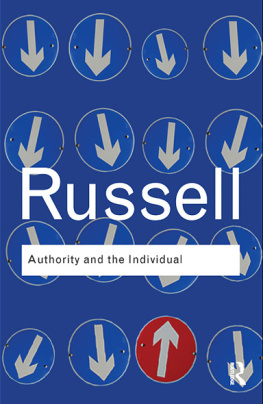
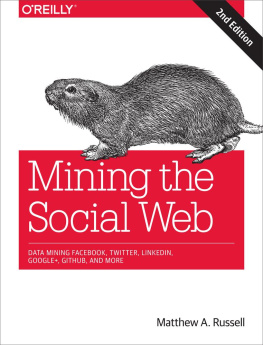
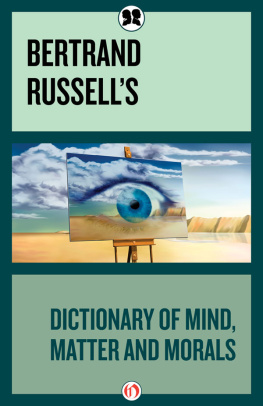
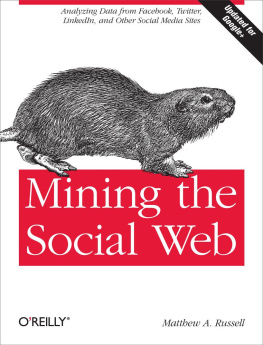

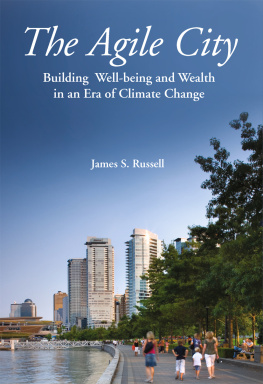
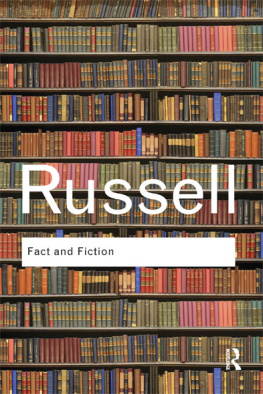

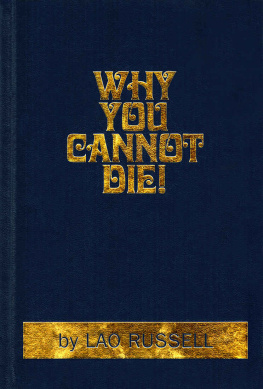
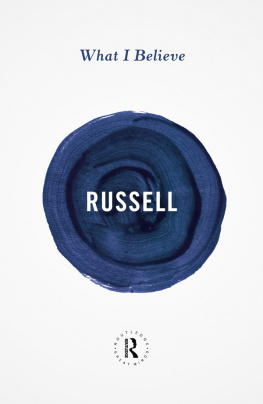
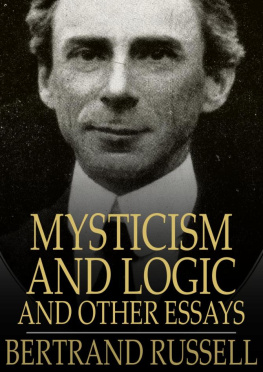
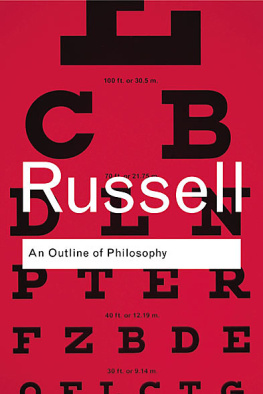
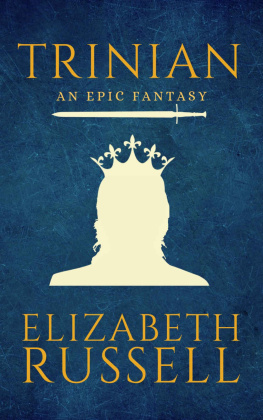
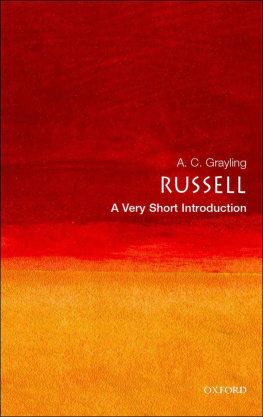
![Russell - On education [recurso electrónico]](/uploads/posts/book/137691/thumbs/russell-on-education-recurso-electro-nico.jpg)
